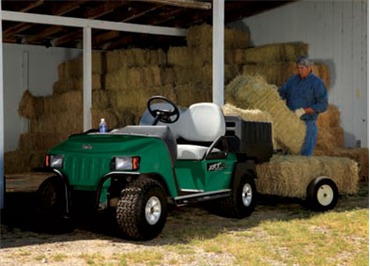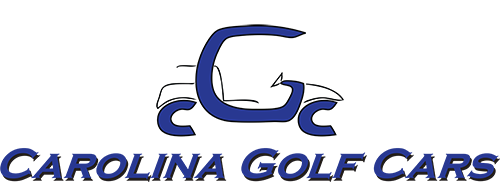There’s a compelling reason why golf carts are now more commonly termed “golf cars”. Originally the golfing enthusiast’s constant companion, these small utility cars have gone beyond cruising country clubs and golf courses; they have eventually made it to the streets and are used in various applications. Today, we see a lot of them making the rounds in major public roads in several states across the country, as well as in commercial and private vicinities.
The Most Common Applications of Golf Cars
Today, we see golf cars in all designs, models, brands and levels of performance. There are also custom golf cars designed to achieve a particular look or service. Many of golf cars are modified to look a lot like popular automobiles – only smaller, more space-saving, more economical and offer better convenience. Others are fitted with extensions and commercial attachments allowing for optimized and inexpensive land management or branded group transportation services.
Golf cars have become an essential part of daily life for many individuals and organizations. People have come to rely heavily on these products as the economical, convenient and practical utility cars that they are. Truly, golf cars can have a world of uses:
• Easy and safe mobilization of persons with disabilities and senior citizens in self-contained communities and retirement areas.
• Transport of people, equipment, produce and other goods within airports, spacious buildings, campuses, seminaries, dealerships, warehouses, farms, villages and other private or commercial properties.
• Security patrolling and maintenance of the aforementioned properties
• Convenient transport within construction site
• Gardening and other yard work and navigate the entire vicinity conveniently.
• Event transportation, such as in weddings.
• Snow plowing.
• Hobbies and recreation, such as 4×4 driving and off-road activities.

What the Law Says About Golf Cars on the Road
In 1998, when the number of electric-powered golf carts and small vehicles frequenting the streets like any other vehicle skyrocketed, the National Highway Traffic Safety Administration, operating under the Department of Transportation, promulgated the Federal Motor Vehicle Safety Standard No. 500 ((49 CFR 571.500).
Originally, the use of street legal golf carts and similar small vehicles were subject to local and state approval, as long as they did not exceed the speed limit of 20 miles per hour. Golf carts manufactured or modified to go faster than that are considered motor vehicles under the Federal law and should therefore comply with existing motor vehicle safety standards.
It was clear, however, that compliance with the motor vehicle safety standards under the Federal law was not feasible for golf carts and similar smaller vehicles. Consequently, the NHTSA reclassified golf carts with top speed of 20 to 25 miles per hour as “low-speed vehicles.”
LSVs are required under the Federal Motor Vehicle Safety Standard No. 500 “to be equipped with headlamps, stop lamps, turn signal lamps, tail lamps, reflex reflectors, parking brakes, rear view mirrors, windshields, seat belts, and vehicle identification numbers” for safety purposes. At present, each golf cart should have a displayed warning label confirming that they cannot be driven on public roads at a speed of more than 25 miles per hour.
The Federal Highway Administration, as detailed in its Manual on Uniform Traffic Control Devices, also allowed states to utilize warning signs about golf carts and other LSVs sharing the road with automobiles and other slow-moving transport utilities such as mopeds and bikes.
Presently, State laws govern on-road use of golf carts in their jurisdiction. Street legal golf carts, which are widely used at present in many places all over the country, should meet all safety equipment requirements, as well as operational and speed limits – in full compliance with Federal Motor Vehicle Safety Standard No. 500.
Specifically, the government of the state of North Carolina has opened up these decisions and allowed each municipality to determine their own golf car street legal requirements; which do not have to adhere to federal guidelines on the subject. Make sure to contact a trusted local golf car dealership in your area to determine the best practices and guidelines for your neighborhood before making your purchase.
Talk To A Trusted Golf Cart Dealer in the Carolinas
Whom you speak to about your golf car needs will play a key role in finding what you are looking for. Trust only an experienced and expert team that can offer you an extensive fleet of new and custom golf cars to help you navigate your lifestyle and business.
Sources:
http://business.time.com/2012/10/22/golf-carts-hardly-just-for-the-golf-course-anymore/
http://www.nhtsa.gov/cars/rules/rulings/lsv/lsv.html#lsv3
http://assets.aarp.org/rgcenter/ppi/liv-com/insight54.pdf
